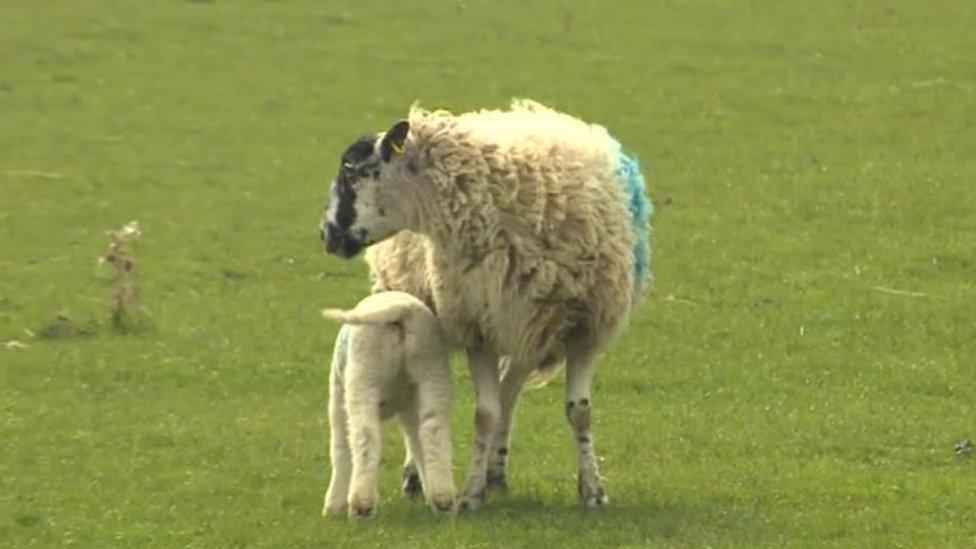Why are sheep being 'barbarically' butchered?
- Published
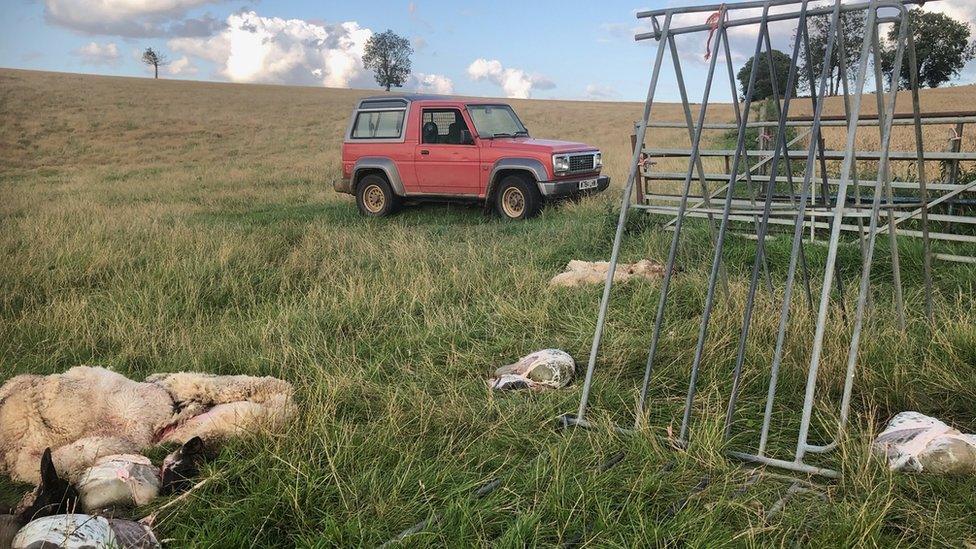
A farmer near Daventry said 11 of his lambs were killed
A spate of illegal butchering in fields has seen shocking pictures emerge of sheep and lambs killed and stripped of their meat in the fields where they stood. But what could be behind the killings?
Julie Steele had hand-reared her pet sheep since they were lambs.
"They were my babies," she says of her small flock, named Pesky, Pippy, Pipette, Kline and Angel.
She had taken in several of them as orphans and intended they should see out their days in the rolling Leicestershire countryside, near Melton Mowbray.
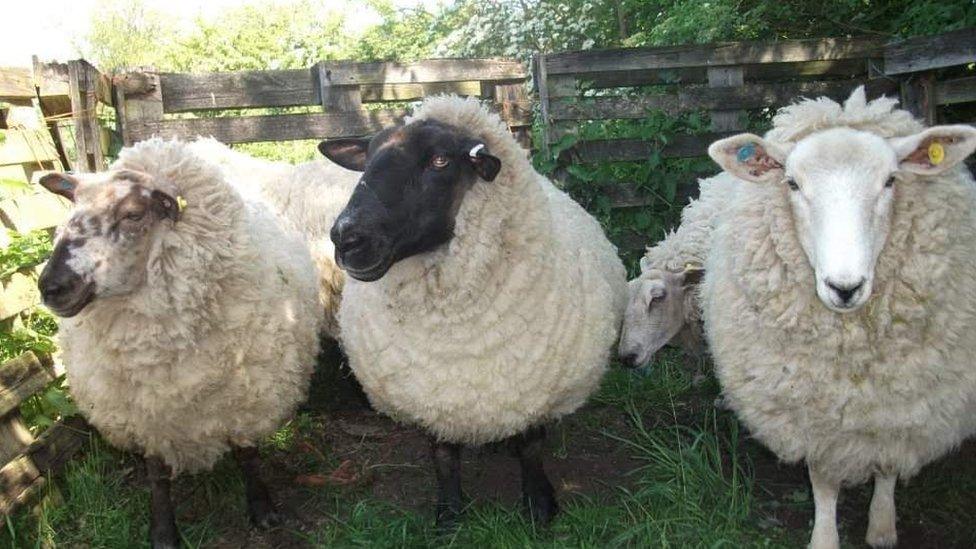
Julie Steele was "devastated" by the deaths of Pesky, Pippy, Pipette, Kline and Angel
But one Friday morning, Ms Steele arrived at her smallholding to feed her sheep and made a horrific discovery.
"I could see, near the gate, there were some piles of white," she said. "I walked across the field and I couldn't believe what I saw."
Her sheep, aged between seven and 14, had been butchered in the night. All that was left was their fleeces, heads, legs and organs.
"It was awful; we had to gather their body parts up into a bag," she said. "We were devastated."
What is happening to the sheep?
Ms Steele has been one of several owners to fall victim to a spate of illegal animal butchering in the Midlands.
The National Farmers' Union (NFU) said it believed an organised criminal gang was behind the "incredibly worrying" increase in animals being "barbarically" killed in fields.
Kate Morse, a farmer from Clipston, near Market Harborough, also in Leicestershire, was faced with a similar scene when she went to check on her flock on 17 July.
She was alerted by a farm worker to a damaged gate on her land and when she went to investigate she found nine of her lambs had been butchered.
She said: "We found some legs and things in a pile. There were two hooks hanging in the tree and they'd tossed the rest of the remains over the hedge."
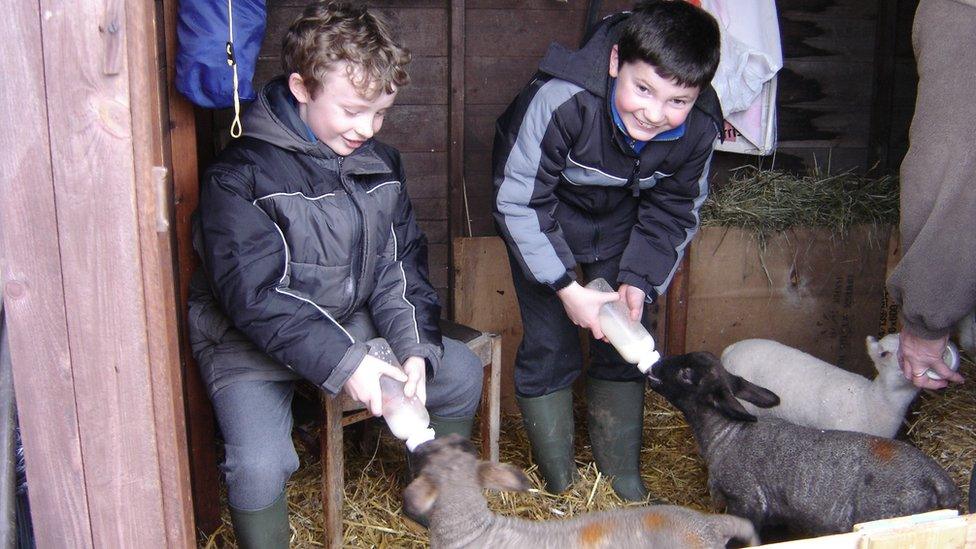
Julie Steele's son Joseph and his friend helping to feed the lambs, which she raised as pets
The animals are believed to have been hanged, before being gutted with a knife and skinned.
The farmers affected believe the killers were professional butchers.
"They were skilled - they were obviously either butchers or worked in an abattoir, I think," said Ms Steele.
Ms Morse said the farm was her business and each lamb would have sold for about £85 but she added the financial cost was not the problem.
"The real cost of it is peace of mind," she said.
James Peck, from the NFU, said: "It's happening more and more in the counties of Leicestershire, Warwickshire and Northamptonshire - we've noticed a huge spike in it recently.
"Since March we're aware of [cases of] sheep being slaughtered and then butchered in fields on those counties, which is incredibly worrying."
How many sheep have died?
Since the start of 2019 at least 259 ewes, rams and lambs have been killed in this way across Leicestershire, Northamptonshire and Warwickshire.
Northamptonshire Police said 75 sheep were reported as illegally killed and butchered, external in the county in the six months to July. Since then a further six lambs have been killed in south Northamptonshire and 11 near Daventry. The force is also investigating several reports of sheep thefts - including 64 ewes that were taken from a field in West Haddon
During the same time period there were five reports of illegal butchery in Leicestershire in which a total of 60 sheep were killed
In Warwickshire 113 sheep have been reported as butchered in fields so far this year with a further 74 reported stolen from farms
There are also reports of isolated cases in Wales, external. However, the NFU said: "We are unaware of it happening on this scale anywhere else in the country and we don't know about similar problems in other countries."
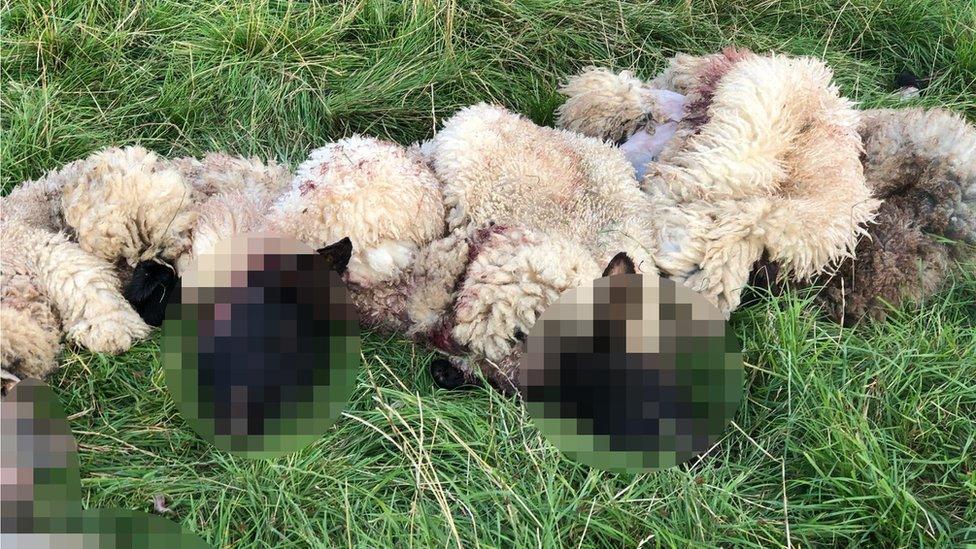
Two men have been arrested in connection with the illegal butchering of sheep but no-one has yet been charged
What is behind the killings?
The NFU said it thought meat from the animals was being sold illegally to restaurants and shops.
The NFU's James Peck said the crimes were unprecedented and were being carried out by a gang of organised criminals, "who appear to have an operation with an outlet" to sell the meat.
He added there was a "real risk to human health" from eating meat from carcases that have not been processed in a licensed abattoir where vets and health inspectors were on hand to ensure welfare was high.
"We'd ask people to avoid it like the plague," he said.
This was a message echoed by the Food Standards Agency, which said meat from illegally-slaughtered lamb was not safe to eat.
"If you've purchased or been offered this meat do not eat it," it said.
Paul Wilson, a professor of agricultural economics at the University of Nottingham, said he imagined the people eating the meat would be "horrified" if they knew where it had come from.
"We need authorities to be much more vigilant about the licensing of the outlets that are likely to be selling this meat," he said.
What are the police doing?
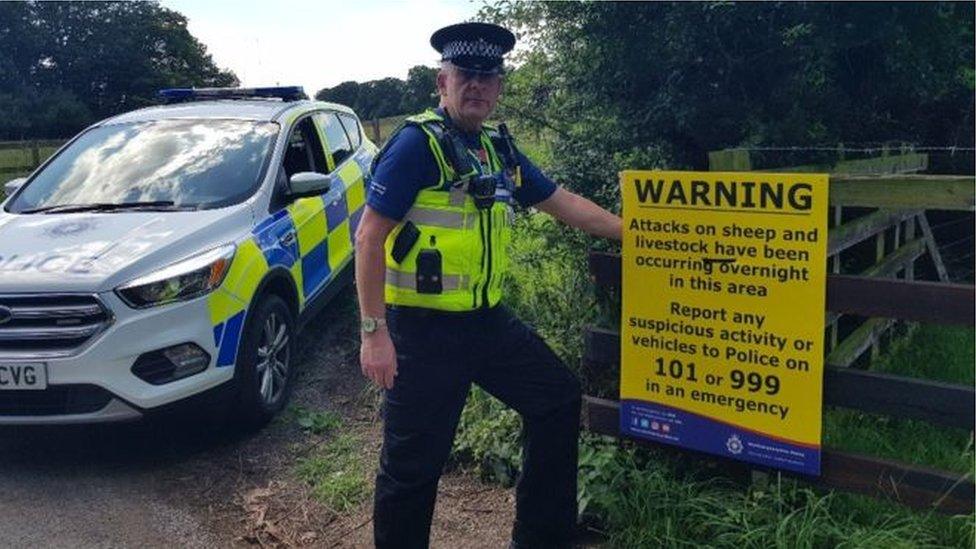
Police officers from Northamptonshire, Leicestershire and Warwickshire forces are working together to try to stop more illegal butchering
Officers from the three affected counties said they were working together to try to catch those behind the butchering.
On 24 July Northamptonshire Police arrested and released a 40-year-old man from Hampshire on suspicion of criminal damage and theft as part of the investigation.
A second man was arrested and bailed on 10 August at a property in Coventry during a joint operation between the Northamptonshire and Warwickshire forces, in which four homes were searched.
You may also be interested in:
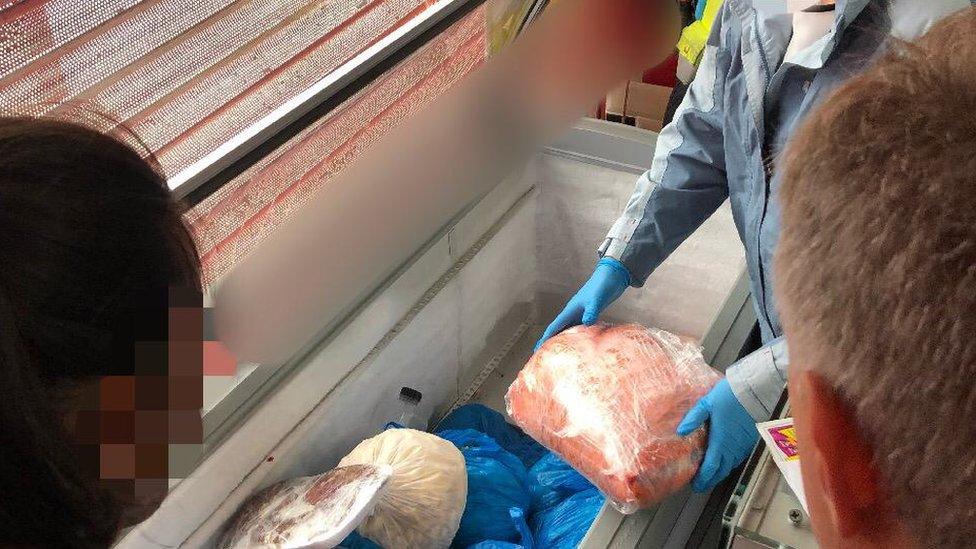
Officers from Northamptonshire and Warwickshire forces, including a specialist search team, executed warrants at four properties in Coventry
Police have also used drones with thermal imaging to help them patrol the countryside.
Sgt Sam Dobbs, from Northamptonshire Police, said: "A lot of the crimes have happened in quite remote locations - you physically can't see from the road what's going on.
"The drone can cover a large area and see such a lot at night with the thermal imaging."
A joint police force operation to deter potential criminals using the A5 corridor, which links the three counties, took place earlier this month.
Officers stopped 268 vehicles, visited 18 farms and investigated one "suspicious incident".
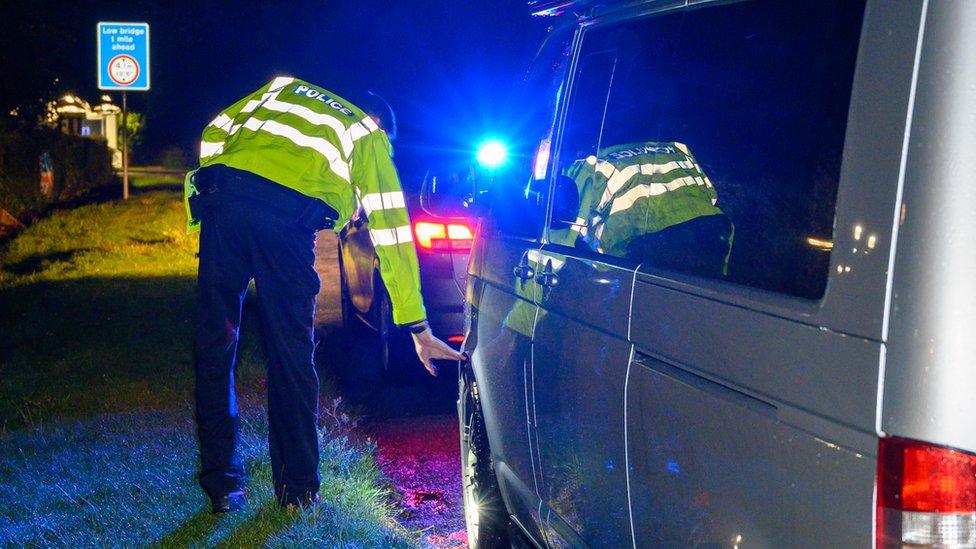
Officers have patrolled areas along the A5 and villages nearby to make intelligence led stops of any suspicious vehicles
In the past, farmers have criticised authorities for a perceived failure to tackle rural crime.
However, smallholder Julie Steele said the police had been "shocked and sympathetic" - although they initially seemed to consider the incident a one-off.
"Obviously now it has escalated, I can only hope all the forces are working together," she said.
Mark Riches, regional director of the Country Land and Business Association, said he supported the police response.
"We believe the police are taking this type of rural crime more seriously," he said, praising the joint force operation and the use of technology.
He warned farm-owners not to confront the perpetrators, telling them instead to call the police.
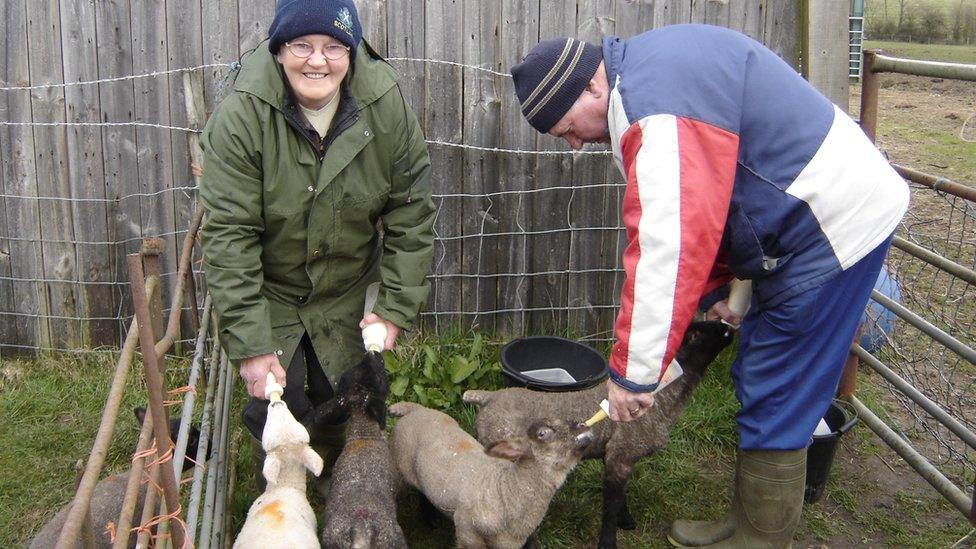
Farmers support the police response but are calling for prosecutions
"What we really need are more prosecutions to act as a strong deterrent to those criminals who have so far managed to avoid paying the price," he said.
Professor Wilson, from the University of Nottingham, said the crime was "difficult to get a handle on".
"Farmers have to operate in an open environment where it's relatively easy for people to come and steal their livestock," he said.
"Because of that, these types of crimes probably will occur again."

Follow BBC East Midlands on Facebook, external, Twitter, external, or Instagram, external. Send your story ideas to eastmidsnews@bbc.co.uk, external.
- Published20 August 2019
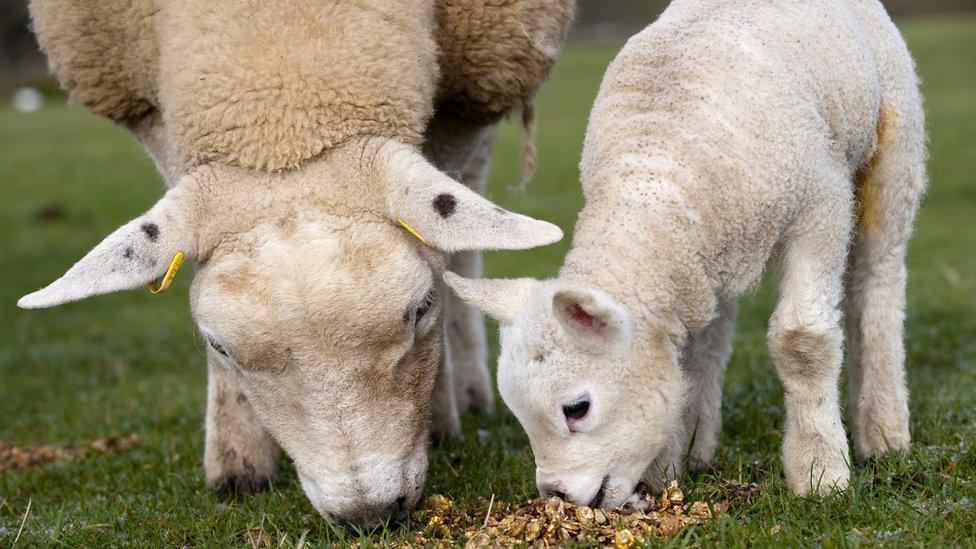
- Published11 August 2019
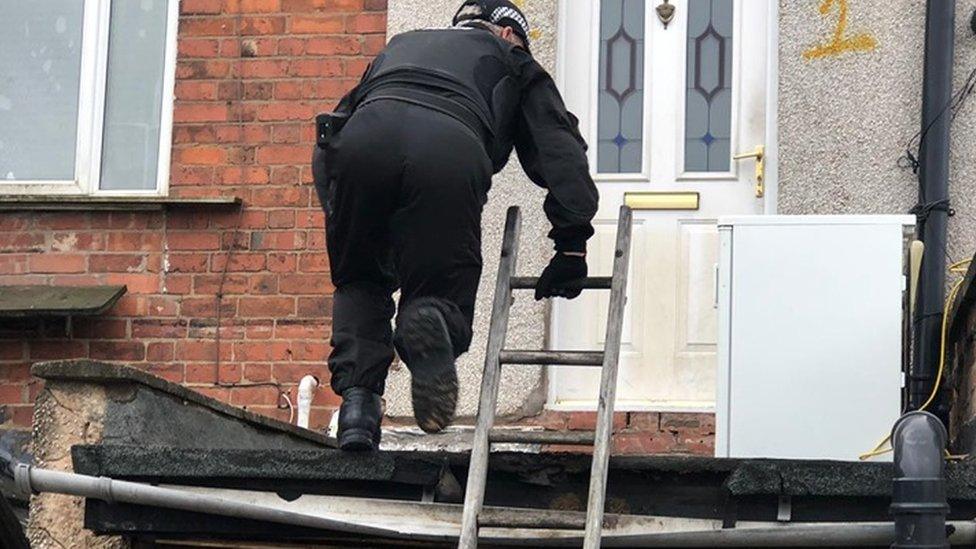
- Published25 July 2019
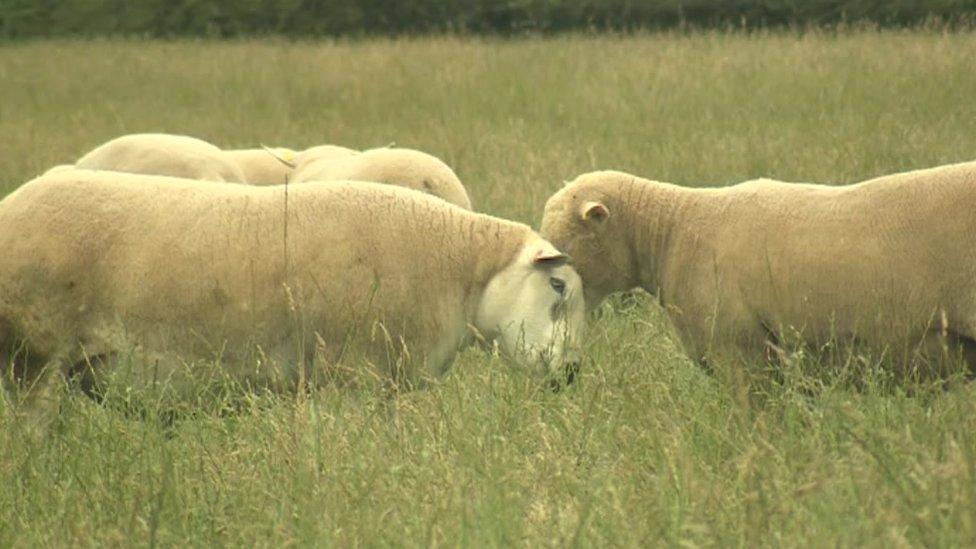
- Published17 July 2019

- Published25 April 2019
